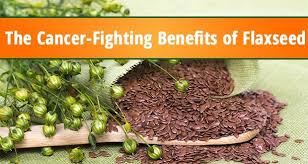
Breaking News
 Sunday FULL SHOW: Newly Released & Verified Epstein Files Confirm Globalists Engaged...
Sunday FULL SHOW: Newly Released & Verified Epstein Files Confirm Globalists Engaged...
 Fans Bash Bad Bunny's 'Boring' Super Bowl Halftime Show, Slam Spanish Language Performan
Fans Bash Bad Bunny's 'Boring' Super Bowl Halftime Show, Slam Spanish Language Performan
 Trump Admin Refuses To Comply With Immigration Court Order
Trump Admin Refuses To Comply With Immigration Court Order
 U.S. Government Takes Control of $400M in Bitcoin, Assets Tied to Helix Mixer
U.S. Government Takes Control of $400M in Bitcoin, Assets Tied to Helix Mixer
Top Tech News
 SpaceX Authorized to Increase High Speed Internet Download Speeds 5X Through 2026
SpaceX Authorized to Increase High Speed Internet Download Speeds 5X Through 2026
 Space AI is the Key to the Technological Singularity
Space AI is the Key to the Technological Singularity
 Velocitor X-1 eVTOL could be beating the traffic in just a year
Velocitor X-1 eVTOL could be beating the traffic in just a year
 Starlink smasher? China claims world's best high-powered microwave weapon
Starlink smasher? China claims world's best high-powered microwave weapon
 Wood scraps turn 'useless' desert sand into concrete
Wood scraps turn 'useless' desert sand into concrete
 Let's Do a Detailed Review of Zorin -- Is This Good for Ex-Windows Users?
Let's Do a Detailed Review of Zorin -- Is This Good for Ex-Windows Users?
 The World's First Sodium-Ion Battery EV Is A Winter Range Monster
The World's First Sodium-Ion Battery EV Is A Winter Range Monster
 China's CATL 5C Battery Breakthrough will Make Most Combustion Engine Vehicles OBSOLETE
China's CATL 5C Battery Breakthrough will Make Most Combustion Engine Vehicles OBSOLETE
 Study Shows Vaporizing E-Waste Makes it Easy to Recover Precious Metals at 13-Times Lower Costs
Study Shows Vaporizing E-Waste Makes it Easy to Recover Precious Metals at 13-Times Lower Costs
When chemotherapy fails, science turns to… flaxseeds?

Now, researchers are looking back to nature to make up for chemotherapy's shortcomings. In a new study, Italian researchers looked at whether flaxseed could enhance the effects of the chemotherapy drug doxorubicin in treating breast cancer.
Despite being considered an essential medicine for cancer by the World Health Organization, doxorubicin is known for carrying highly toxic side effects. Therefore, the researchers sought to find something that could be combined with the drug to reduce the amount of it that patients need to take.
They focused on flax because past studies have shown that phenolic flaxseed oil extract has several chemotherapeutic effects. Their results were very positive, finding that the mixture is able to induce cytotoxicity and cell death, among other benefits. Their findings were published in the International Journal of Oncology.
Why is flaxseed so beneficial?
Flaxseed contains two cancer-fighting components, lignans and the omega 3 fatty acid known as ALA. Lignans, which can also be found in sesame seeds, are plant-based estrogens that can fit into the estrogen receptors in breast and endometrial tissue cells. This can protect cells from becoming damaged or cancerous.
A past review by University of Toronto researchers showed that flaxseed works in many ways to prevent breast cancer and slow its growth. For example, animal studies have indicated that a diet made up of anywhere from 2.5 to 10 percent flaxseed could reduce tumor growth. Diets of 10 percent flaxseed can raise the effectiveness of the chemo drug tamoxifen, while a diet of four percent flaxseed oil can increase the effectiveness of the chemo drug trastuzumab (Herceptin).
Lignans have been shown to decrease breast cancer mortality by as much as 70 percent and all-cause mortality by up to 53 percent. Taking 50 milligrams of lignans per day in the form of 25 grams of flaxseed was shown to reduce tumor growth in people with breast cancer in just 32 days.
Meanwhile, other studies have shown an association between flaxseed and lignan intake/serum levels and a lower risk of breast cancer, especially in women who are postmenopausal.
The statistics are promising
How do they accomplish this? First, the lignans in flaxseeds block the blood supplies tumors depend on to live. They also lower estrogen production, block estrogen receptors, and help the body generate more protective estrogens.

 Smart dust technology...
Smart dust technology...

